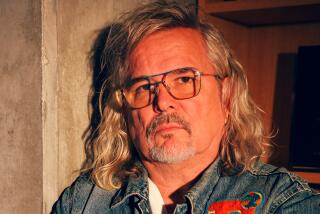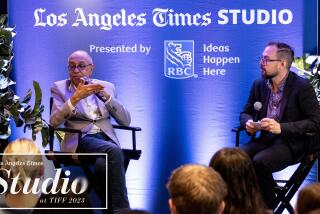‘Dead Man Walking’ No ‘Distortion,’ Authors Claim : Truth Is Movie’s Ultimate Defense
- Share via
I don’t know what’s going on with Millard Farmer that drives him to so fiercely oppose the film “Dead Man Walking.” In my book of the same name, which he said was “moving,” he’s one of my heroes. Now, he’s an opponent. Worse, he’s a vilifier. In his letter to The Times he attacks the film for betraying one of the men I counseled on death row, Patrick Sonnier. Then he savages Tim Robbins and Susan Sarandon, accusing them of the basest, most superficial and exploitative motives.
He says that the film’s characterization of Matthew Poncelet vilifies Sonnier. He well knows that the Poncelet character is not Sonnier or anyone else in my book. I think his basic disagreement with the film is that he wanted the death row character to be presented in a more sympathetic light.
But I agree with Tim Robbins on the Poncelet characterization. The moral question is pushed with such a character: Can’t we execute that trash?
In other missives, Farmer has attacked me personally for collaborating with Robbins. At first he said I was “seduced” by Hollywood, “like a deer who gets transfixed by headlights on the highway” (this accusation found its way into print).
Then he accused me of baser motives, saying that I was self-serving, and that I betrayed the trust of death row inmates to get fame. Now in his letter to The Times I notice that he’s dropped his personal attack on me and turned his full wrath on Tim Robbins and Susan Sarandon, accusing them of creating nothing more than a piece of “Hollywood sensationalism,” for the most crass, superficial motives. They are not sincerely committed to social justice, he claims. They’re trendy, superficial, insincere “Hollywood types” who prostitute my book for their own ends.
I stand behind this film. I collaborated with Robbins on every scene, every line. This was a risky film to make. It deals with tough subject matter, and producers weren’t lined up at my door begging to get a crack at making a film of my book. Then Robbins took it, and it’s his genius for storytelling--and the splendid acting of Sarandon and Sean Penn--that give the film its heart and its verve.
*
Actually it’s not simply a film about capital punishment. It’s a story about unconditional love. And it’s the first film I know of that puts a personal face on capital punishment and probes its moral dimensions in such a riveting way. Maybe that’s why virtually every review of the film is so positive and why people are standing in long lines even in freezing weather to see it.
Everybody gets it but Millard Farmer.
And the saddest thing about Millard is that, while he defends death row inmates against prejudice and stands so firmly for their dignity as persons (which is why he is a hero in my book), with Robbins and Sarandon he is guilty of the most rank, blatant prejudice. Something about this film has blinded Farmer, and I will not cast judgment on his motives. But I know this dynamic about the spiritual life: when our souls are in such turmoil that we are driven to attack others and impugn to them the worst possible motives, it’s time to search inside ourselves for that vulnerable part that the other has threatened--the unnamed “fear up inside me” that Bruce Springsteen sings about in “Dead Man Walking”--which makes us lash out viciously against others, the seed of violence in us all.
More to Read
Only good movies
Get the Indie Focus newsletter, Mark Olsen's weekly guide to the world of cinema.
You may occasionally receive promotional content from the Los Angeles Times.










